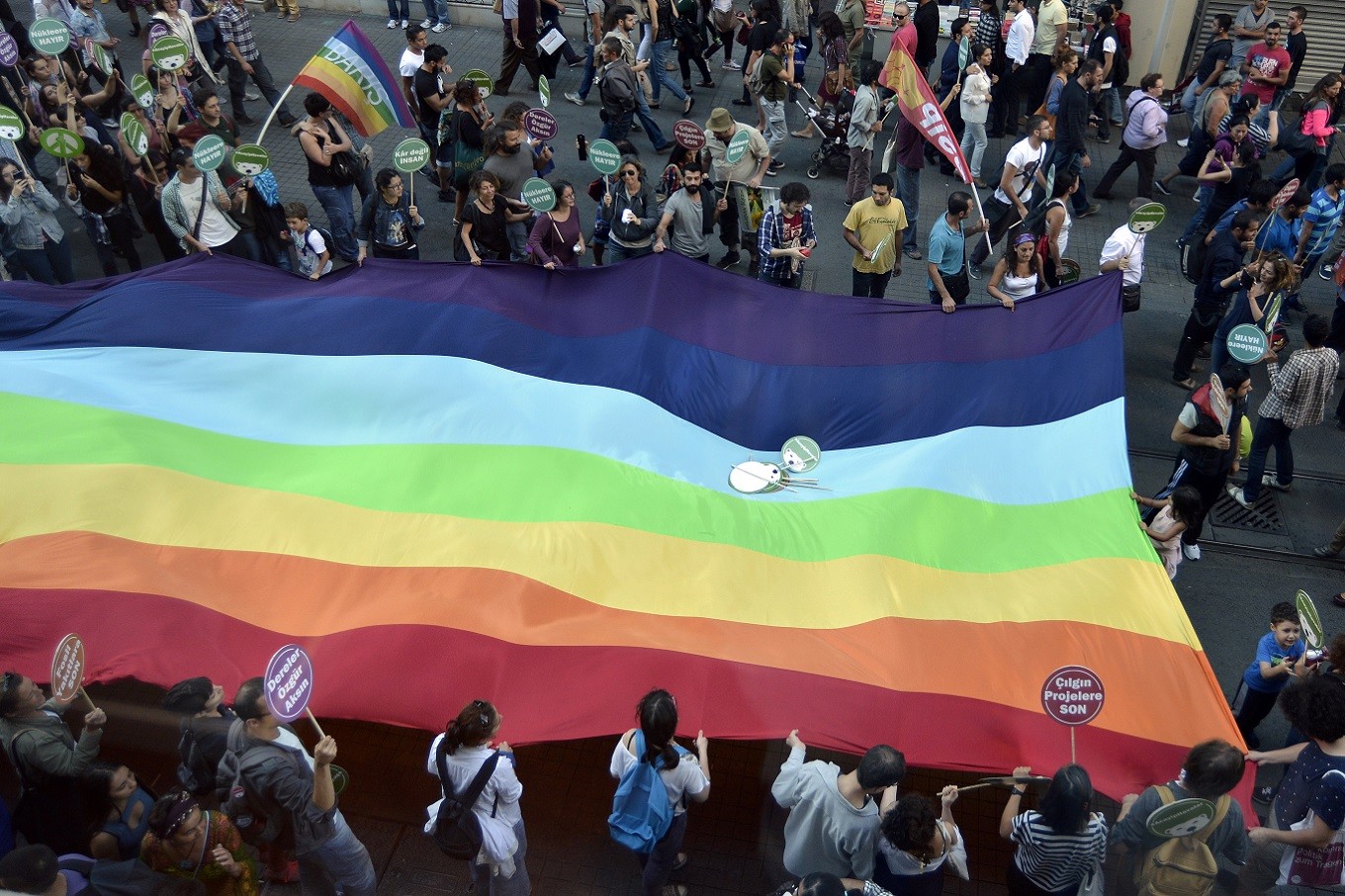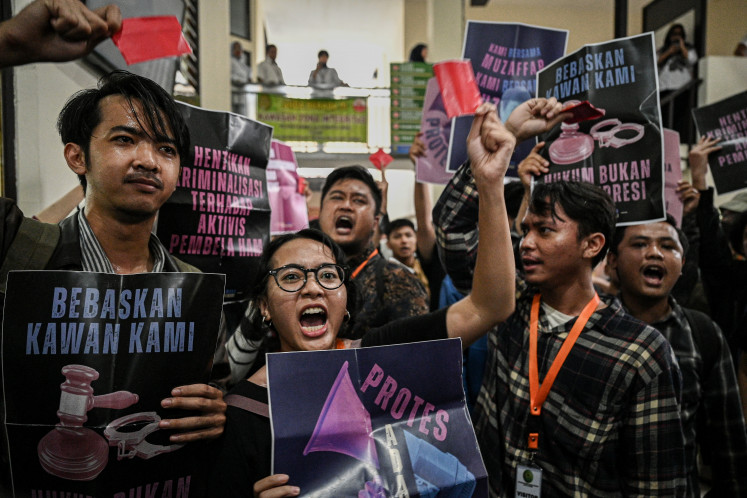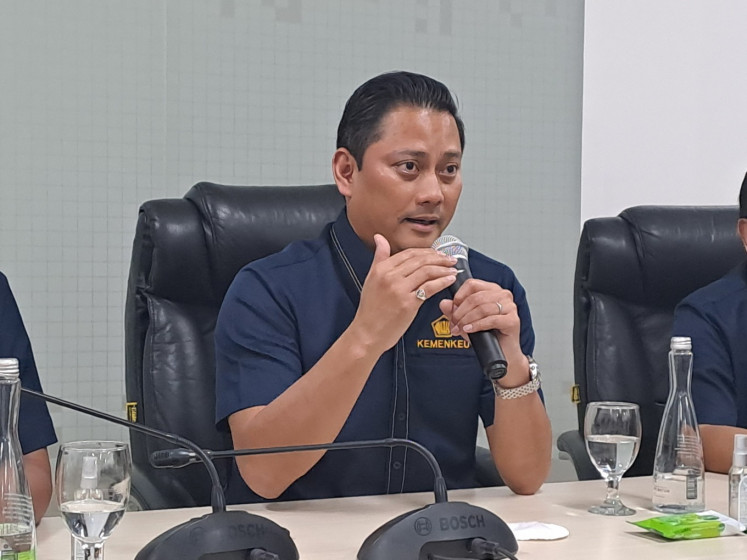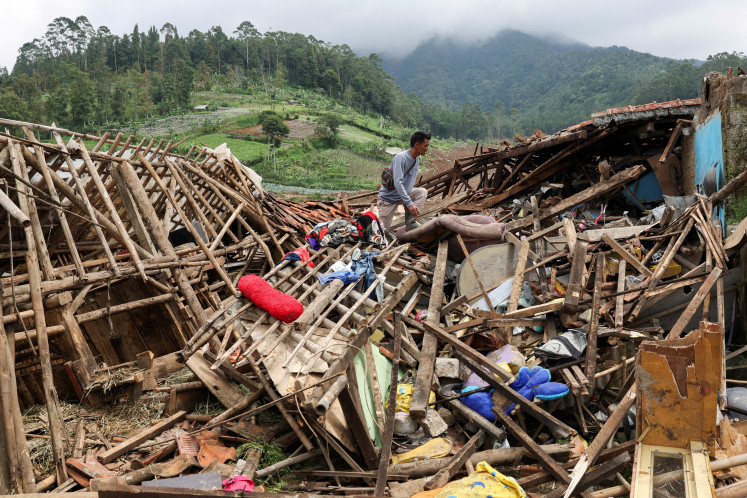Popular Reads
Top Results
Can't find what you're looking for?
View all search resultsPopular Reads
Top Results
Can't find what you're looking for?
View all search resultsSafeguarding national security and the Indonesian LGBT community
Indonesian human rights defenders are rightly concerned about a draft bill on national security that is now being discussed in the legislature. Particularly problematic is the draft’s very vague definition of what would constitute a “threat to national security”.
Change text size
Gift Premium Articles
to Anyone
S
outheast Asian governments are increasingly restricting the work of human rights defenders, misusing a variety of laws supposedly aimed at defending “national security” or countering vaguely defined “terrorist threats”.
The UN special rapporteur on the situation of human rights defenders, Michel Forst, recently released his observations on the communications he sent to governments in 2015.
His observations reveal that human rights defenders in the Asia-Pacific region face increasing risks as they do their work promoting and protecting human rights, with governments continuing to disregard allegations of violations against them.
In 2015, the special rapporteur sent 66 communications to governments in the Asia-Pacific region – the highest number of communications sent compared to all the other regions in the world. To add to the problem, the response rate by governments in the region was 42 percent, the second lowest next to Africa’s 21 percent.
The special rapporteur observed that there is a continued use of laws to criminalize the legitimate and peaceful activities of human rights defenders. He cites the use of Malaysia’s Sedition Act of 1948 and Thailand’s Computer Crimes Act to unduly limit the right to freedom of expression and opinion of human rights defenders in those countries.
He also expressed concern regarding the development of laws that negatively impact certain rights of human rights defenders, such as the rights to freedom of expression and association.
One of the most alarming manifestations of this unfortunate trend comes from Indonesia, where government officials have been citing “national security” to restrict human rights defenders working to protect the rights of people to be free of discrimination on the basis of sexual orientation or gender identity.
Recently, Indonesia’s defense minister, Ryamizard Ryacudu, said that homosexuality is “a form of modern warfare, an attempt by Western nations to undermine the country’s sovereignty”. This comes on the heels of comments by former information and communications minister Tifatul Sembering “to kill all gay persons”.
Indonesia’s Vice President Jusuf Kalla recently called for funding to be discontinued to a UN program that is aimed at addressing the stigma, discrimination and violence toward LGBT persons. Furthermore, there have been reports of the State Intelligence Agency urging donors to stop funding LGBT groups on the premise that they cause destabilization and insecurity in the country.
In this context, Indonesian human rights defenders are rightly concerned about a draft bill on national security that is now being discussed in the legislature. Particularly problematic is the draft’s very vague definition of what would constitute a “threat to national security”.
In the most recent version of the bill, a “threat” to national security was any type of activity, whether done in Indonesia or abroad, that may endanger the nation’s safety, security, sovereignty and territorial integrity. A threat could also be any action that endangers the “national interest”, whether it is the nation’s ideology, politics, economy, or socio-cultural life.
As demonstrated by recent statements, it is entirely possible that such a vague and ambiguous definition would be abused in Indonesia to harass and intimidate the country’s LGBT community as a “threat to national security”.
Indonesia must halt the creeping return of the nasty old habit of claiming that critical or marginalized voices threaten the country’s national security. Indonesia’s civil society has been able to flourish in the past few years since the fall of the Suharto government and this is a sign of a growing, vibrant, confident country.
Furthermore, as ASEAN touts its economic development and looks ahead to greater integration, it must create more, not less, space for civil society.
Indonesia leads among ASEAN member states in human rights promotion and protection. It should therefore ensure that any measure meant to safeguard national security does not target people who do not conform to traditional gender roles. Measures to safeguard national security should protect all Indonesians, without exception – including LGBT persons.
***
Emerlynne Gil is the senior international legal adviser for Southeast Asia for the International Commission of Jurists (ICJ). The ICJ is a global organization of judges and lawyers dedicated to promoting and protecting human rights and upholding the rule of law. She can be reached at emerlynne.gil@icj.org.
---------------
We are looking for information, opinions, and in-depth analysis from experts or scholars in a variety of fields. We choose articles based on facts or opinions about general news, as well as quality analysis and commentary about Indonesia or international events. Send your piece to community@jakpost.com.









